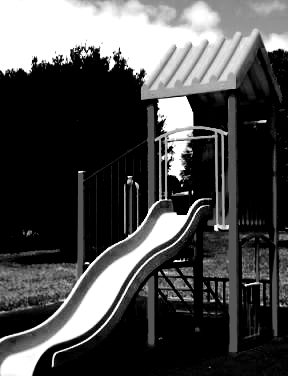More needed to avoid poison playgrounds

Towns with large smelters and other heavy industry placed closed to community centres sometimes register amounts of dust metals on local playgrounds.
A new study has found that while the washing of playground equipment in mining towns does reduce children’s exposure to dust metals by 55.9 per cent, recontamination occurs within 24 hours.
The latest study was based in Port Pirie, South Australia, where lead smelting has taken place since 1889. Dust with metals (arsenic, cadmium, copper, lead and zinc) in Port Pirie playgrounds have been recorded at levels well above state and international benchmarks.
A 2013 study showed that atmospheric emissions from the Port Pirie smelter were directly related to surface dust and hand metal exposures from playground equipment.
Now, a Macquarie university research team has looked at ways to improve the situation.
“We tested four playgrounds, and found that although post-play hand wipe metals were lower on wash days, the washing benefits were short lived, particularly at playgrounds closest to the smelter, where recontamination was almost immediate,” Macquarie’s Professor Mark Taylor said.
Childhood lead exposure remains a persistent problem in Australia’s primary smelting and mining cities, with 21 per cent, 4.8 per cent and 22.7 per cent of children under five years of age in Broken Hill, Mount Isa, and Port Pirie, respectively, having a blood lead level above 10 µg/dL, the current Australian goal (which is under review).
“The results clearly show that while washing play equipment reduces metal loading on playgrounds and hands after play, it does not resolve the problem of emissions and their depositions on community playgrounds. The only permanent way to protect children from exposure to dust metals is to eliminate or significantly reduce smelter emissions, which is purported to occur in Port Pirie following the completion of the $514 million smelter transformation project,” said Professor Taylor.
“In the meantime, frequent hand and equipment washing is recommended for limited protection, and ongoing testing and lower standards for all environmental metals in Port Pirie is an absolute necessity for maximum environmental and human health protection.”







 Print
Print